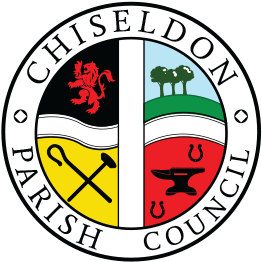Senior councillors will meet on 13th December to discuss Swindon Borough Council’s ‘extremely serious’ financial position.
The local authority is currently forecasting a £6.5m in-year budget gap and an estimated £14.1m shortfall for the following financial year (24-25) due largely to inflation and the significant additional costs associated with Children’s Services.
And the Council’s Cabinet will hear how the Local Government Association (LGA) has described the Council’s finances as being on a “cliff edge” with a total of £32.9m in savings needing to be delivered next year, which equates to 20 per cent of this year’s budget. So far, £18.8m in savings has been identified.
The LGA carried out a financial health check of the local authority last month after being asked by political leaders to undertake a Finance Peer Challenge, with a specific focus on the revenue budget position and the impact of the challenges in delivering Children’s Services.
In its review, which will also be discussed by the Council’s Cabinet next week, the LGA highlighted how the Council needs to bring its Children’s Services budget under control if it is going to succeed in achieving long-term financial stability.
The service area, which is currently forecasting a budget pressure of £9.5m for the next financial year, has developed a transformation plan to address concerns raised by Ofsted after it was rated ‘Inadequate’ following its recent inspection and to reduce costs.
The LGA also recommended the Council tackle concerns over a shortfall in the amount of reserves it holds, as well as ensuring the Dedicated Schools Grant (DSG) deficit is addressed and that a Medium-Term Financial Strategy (MTFS) is developed to balance the Council’s budget beyond 2024-25.
The Peer Challenge report added that the new political and managerial leadership of the Council “are showing clear ownership of the financial position that the Council finds itself in and collectively they are committed to Swindon and to addressing the financial challenges”. It also recognised how well respected the council’s finance team is and how the Council has a good track record of delivering savings, being on schedule to deliver 83 per cent of savings in 2023-24.
Reference was made to the importance of the Council’s new corporate plan (The Swindon Plan) which, once finalised, will set the Council’s priorities in the years to come, as well as progressing a Council-wide transformation plan to make the organisation more financially resilient.
Although the Council has reduced its current in-year budget deficit by £3.6m since the Cabinet meeting in September, councillors will be told that it is vital that ongoing spending controls continue to be rigorously applied across the organisation to minimise the use of reserves so they can be used to support the 2024-25 budget.
Based on the current proposals, it is anticipated that in order to help to close the budget gap for the next financial year around 80 full-time equivalent posts will be removed from the organisation’s structure in 2024-25, of which 24 are currently vacant. Pending Full Council approval of the 2024-25 budget next February, any changes would be subject to a 30-day consultation process.
Other proposals which will be discussed by the Cabinet include saving £4m by increasing community-led support to reduce demand on Adults’ services and reducing the cost of children’s placements by using more local foster carers and improving the commissioning of services (£2.93m).
Changing the way libraries are run (£606,000 over two years), reducing streetlighting energy costs (£400,000) and withdrawing funding for community transport (£182,000) are some of the other proposals under consideration.
The 2024-25 budget proposals being tabled at next week’s Cabinet meeting assume a 2.99 per cent increase for core council tax and two per cent for the adult social care precept.
Councillor Kevin Small, Swindon Borough Council’s Cabinet Member for Finance, said: “The LGA’s description of the Council’s financial position being on a ‘cliff edge’ may sound dramatic to some, but it is exactly the position we find ourselves in.
“We knew when we took control of the Council in May that inflation and increasing cost pressures, particularly in Children’s Services, were having a severe impact on our budget and we invited the LGA in to give us independent challenge and advice.
“There is no doubt we are facing an extremely serious situation and we will have to make some very tough decisions to bring this year’s budget into line and achieve the huge savings we need for next year in order to set a balanced budget.
“Getting to grips with the eyewatering costs of Children’s social care is critical if the Council is to deliver a balanced budget now and in the future.
“We will be working closely with senior officers to drive the necessary improvements in Children’s Services so we improve outcomes for children in our care and increase our financial resilience.”

